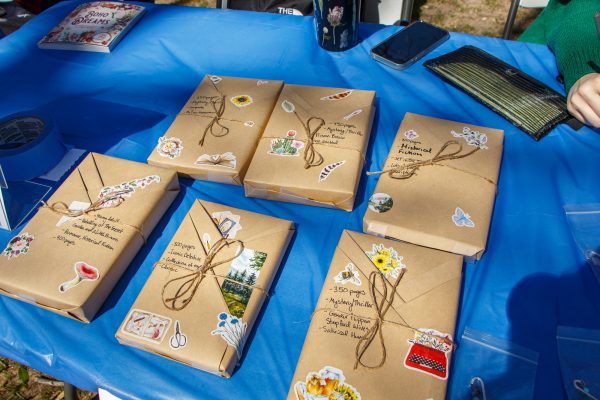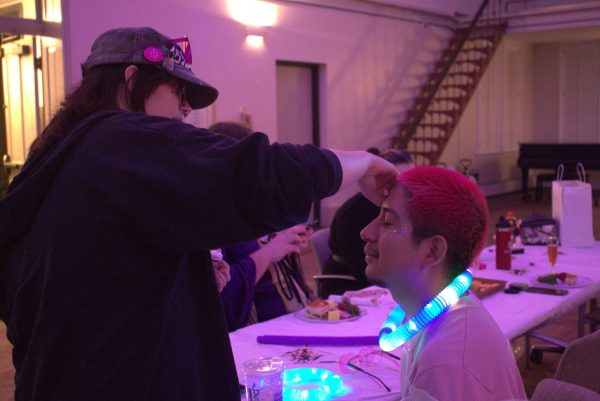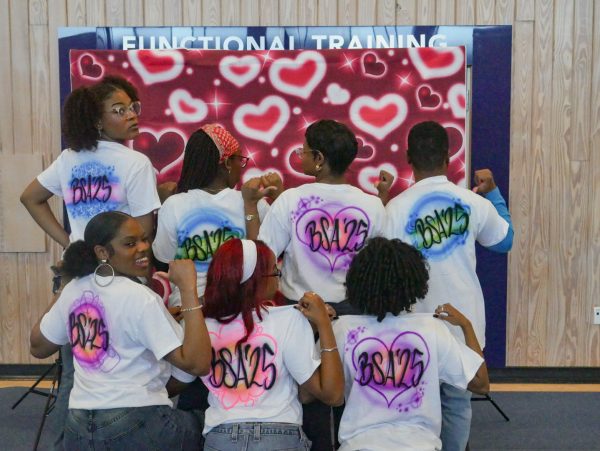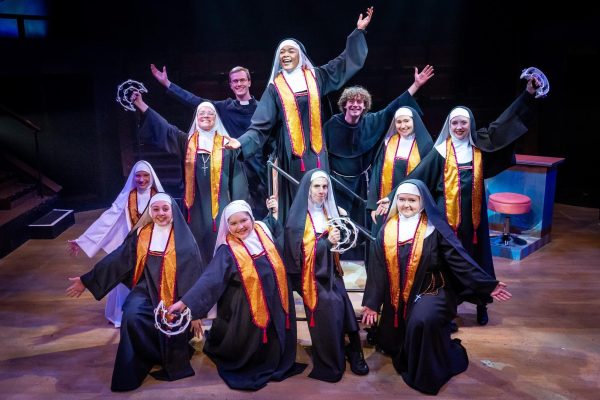Student captures Thailand’s cultural themes, gender identity
In a blink-and-you-could-miss-it exhibit on campus, photographs taken by students in Thailand this past summer are hanging on the walls of the first floor Andre Hall lobby.
There are photos of a Thai boxing ring, poultry, rice fields, a wedding photography studio and boys wearing a full face of makeup.
The latter is a photograph taken by Juliann Marie Butz, a senior digital media management major.
Butz spent 10 weeks of last summer in a Documentary Photography and Global Studies program immersing herself in Thai culture, which she says is very different from culture in America.
“Much slower-paced; friendlier people. Thailand is a Buddhist nation and much of its culture and society reflects that. Everyone has a very ‘go with the flow’ attitude,” Butz said.
When Butz arrived in Thailand, it was up to her to find a topic to focus on through her photography. She had been interested in issues of gender identification for a while and decided she wanted to explore this issue through a global lens in Thailand.
“I was curious to learn how the other side of the world approaches gender identification. I wanted to know how accepting the Thai people were, and I was curious to discover what aspects of their culture contributed to their thoughts and feelings about gender identification and LGBTQ rights,” Butz said.
Butz documented “ladyboys,” which is the term used in Thai culture for a transgender female (a male who has transitioned female.) Butz found that Thai people were accepting of ladyboys, who play a huge role in popular culture and traditional Thai ceremonies.
“I get really upset knowing that people in my country are persecuted for following their hearts and expressing their truest version of themselves… I hope that we can one day reach the same level of ultimate integration and love with all of the people of the U.S.A.,” Butz said.
“In Thailand, people are people despite their gender identification. It really is that simple, and it was beautiful and heartwarming to witness.”
Though Butz aimed to document something with substance that could be shared with other people, she also found herself simply happy to be able to dedicate some time to her creativity.
“Since I’m not a photo major, it’s hard to find time to do creative things, and I was happy to simply be one with my art for a period of time. The trip in it’s entirety was one of the most important and impactful things I’ve done in my life thus far,” Butz said.
Butz and her classmates spent seven weeks photographing different cultural themes in Thailand, among them the Thai wedding industry, local fish and fishing, the noteworthy ordinary, Muay Thai and traditional Thai medicine.
“My classmates are all brilliant photographers, and I loved learning from them and soaking in their creative energy. When you shoot photos constantly for seven weeks in a foreign place, your style and approach is bound to change,” Butz said.
After visiting Thailand, Butz hopes to continue documenting other countries.
“I would love to continue my documentary work in another country with the same focus on gender identity. Once I finish school, I plan to travel internationally for a few years.”
Correction: The print version of this article in issue 6 incorrectly attributes the accompanying photograph to Amar Gupta. The photograph was taken by Juliann Butz.






